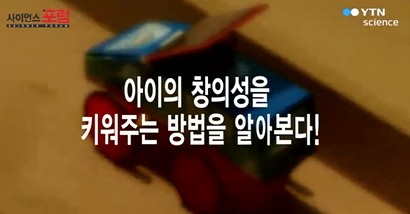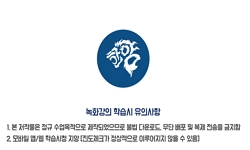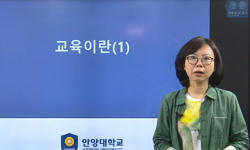The purpose of this study is to analyse the cases of the schools which are based on the brain education and to suggest a model which can create a happy school culture for the students, parents and teachers. Through this study, as well as spreading ‘...
http://chineseinput.net/에서 pinyin(병음)방식으로 중국어를 변환할 수 있습니다.
변환된 중국어를 복사하여 사용하시면 됩니다.
- 中文 을 입력하시려면 zhongwen을 입력하시고 space를누르시면됩니다.
- 北京 을 입력하시려면 beijing을 입력하시고 space를 누르시면 됩니다.

제 4차 산업혁명 인공지능 시대 혁신학교 모델 ‘뇌활용 행복학교’ 도입 가능성 탐색 = Exploring the Possibility of Adopting 'Brain Utilizing Happy School' an Innovative School Model in the Era of the Fourth Industrial Revolution
한글로보기https://www.riss.kr/link?id=A104312966
- 저자
- 발행기관
- 학술지명
- 권호사항
-
발행연도
2017
-
작성언어
Korean
- 주제어
-
등재정보
KCI등재
-
자료형태
학술저널
-
수록면
453-466(14쪽)
-
KCI 피인용횟수
1
- DOI식별코드
- 제공처
-
0
상세조회 -
0
다운로드
부가정보
다국어 초록 (Multilingual Abstract)
The Happy School Movement helps people to have positive emotions through the understanding of the brain and the experience of using their own body. It also improves the self-directed learning ability by raising the internal strength to compete with oneself by self-reflection and consciousness enhancement. It is a movement to create a school culture that makes everyone happier through promoting changes from self-minded culture to coexisting culture, where one cares and have interest in its neighbour, community, and country.
Therefore, considering that the existing Happy School movement is an alternative to change the school culture, it is necessary to find an innovative school model that can create a happy school culture for students, parents and teachers. In other words, in order to develop a culture of "Brain Utilizing Happy School" as well as customised education suitable for the characteristics of the brain and to develop the "Brain Utilizing Happy Education" which requires teachers’ training, the parent education to improve the school culture. This "Brain Utilizing Happy School" maximizes the characteristics of school culture formed through the existing Happy School Movement, and one can said that it is a cumstomised education process, considering the characteristics of the brain in the fourth industrial revolution, the era of artificial intelligence.
The purpose of this study is to analyse the cases of the schools which are based on the brain education and to suggest a model which can create a happy school culture for the students, parents and teachers. Through this study, as well as spreading ‘happy school movement’ we will explore the possibility of introducing the "Brain Utilizing Happy School" which can make the students, parents, and teachers can make ‘Happy Brain’ in respect of the characteristics the fourth industrial revolution where artificial intelligence is heavily focused.
The Happy School Movement helps people to have positive emotions through the understanding of the brain and the experience of using their own body. It also improves the self-directed learning ability by raising the internal strength to compete with oneself by self-reflection and consciousness enhancement. It is a movement to create a school culture that makes everyone happier through promoting changes from self-minded culture to coexisting culture, where one cares and have interest in its neighbour, community, and country.
Therefore, considering that the existing Happy School movement is an alternative to change the school culture, it is necessary to find an innovative school model that can create a happy school culture for students, parents and teachers. In other words, in order to develop a culture of "Brain Utilizing Happy School" as well as customised education suitable for the characteristics of the brain and to develop the "Brain Utilizing Happy Education" which requires teachers’ training, the parent education to improve the school culture. This "Brain Utilizing Happy School" maximizes the characteristics of school culture formed through the existing Happy School Movement, and one can said that it is a cumstomised education process, considering the characteristics of the brain in the fourth industrial revolution, the era of artificial intelligence.
국문 초록 (Abstract)
따라서, 기존의 해피스쿨 운동은 학교 문화를 변화시킬 수 있는 하나의 대안이라는 점을 감안하여학생, 학부모, 교사가 모두 행복한 학교 문화를 형성할 수 있는 혁신학교 모델을 발굴할 필요가 있다. 즉, 두뇌 특성에 적합한 맞춤형 교육은 물론, “뇌활용 행복학교” 문화를 조성하고 “뇌활용 행복교육”을 전개할 수 있도록 먼저 교사 연수, 학부모 교육, 학생 교육 등을 계획적이고 체계적으로 실시함으로써 학교 문화를 개선하는데 중점을 두어야 한다. 이러한 “뇌활용 행복학교”는 기존의 해피스쿨 운동을 통해 형성한 학교 문화의 특징을 극대화하고 제4차 산업혁명 인공지능 시대에 두뇌 특성을 고려한 맞춤형 교육, 두뇌가 행복한 학교 문화를 만들어 갈 수 있다는 점에서 기존의 해피스쿨 운동을 발전시킨 학교라고 볼 수 있다.
본 연구에서는 뇌교육에 기반한 해피스쿨 운영 학교들의 사례 분석을 통해 기존의 학교 교육의 문제점들을 보완하여 학생, 학부모, 교사 모두가 행복한 학교 문화를 조성할 수 있는 혁신학...
본 연구에서는 뇌교육에 기반한 해피스쿨 운영 학교들의 사례 분석을 통해 기존의 학교 교육의 문제점들을 보완하여 학생, 학부모, 교사 모두가 행복한 학교 문화를 조성할 수 있는 혁신학교 모델을 제시하는데 그 연구의 목적이 있다. 본 연구를 통해서 해피스쿨 운동의 확산은 물론, 제4차 산업혁명 인공지능 시대에 두뇌 특성을 고려하고 학생, 학부모, 교사가 모두 행복한 뇌를 만들어 갈 수 있는 “뇌활용 행복학교” 도입 가능성을 탐색하였다는 점에서 의의가 있다. 해피스쿨 운동은 뇌의 이해와 몸을 사용하는 체험을 통해 긍정적 정서를 선택하게 되고, 자기성찰과 의식향상으로 자기와 경쟁할 수 있는 내면의 힘을 키워 자기주도적 학습 능력 향상은 물론, 나 중심의 개인주의 문화에서 이웃과 사회, 국가에 대한 관심을 공유하면서 공동체에 관심을 가지게 되는 변화를 통해 모두가 행복해지는 학교 문화를 만들어 가는 운동이라는 점을 알 수 있다.
따라서, 기존의 해피스쿨 운동은 학교 문화를 변화시킬 수 있는 하나의 대안이라는 점을 감안하여학생, 학부모, 교사가 모두 행복한 학교 문화를 형성할 수 있는 혁신학교 모델을 발굴할 필요가 있다. 즉, 두뇌 특성에 적합한 맞춤형 교육은 물론, “뇌활용 행복학교” 문화를 조성하고 “뇌활용 행복교육”을 전개할 수 있도록 먼저 교사 연수, 학부모 교육, 학생 교육 등을 계획적이고 체계적으로 실시함으로써 학교 문화를 개선하는데 중점을 두어야 한다. 이러한 “뇌활용 행복학교”는 기존의 해피스쿨 운동을 통해 형성한 학교 문화의 특징을 극대화하고 제4차 산업혁명 인공지능 시대에 두뇌 특성을 고려한 맞춤형 교육, 두뇌가 행복한 학교 문화를 만들어 갈 수 있다는 점에서 기존의 해피스쿨 운동을 발전시킨 학교라고 볼 수 있다.
참고문헌 (Reference)
1 정지영, "혁신학교 지정 신설초등학교의 교사문화 형성과정과 특성에 관한 사례연구" 서울교육대학교 교육대학원 2013
2 Yoon Seon-Ah, "The research trends and implications for further studies of emotion regulation in brain education" 2 : 19-45, 2008
3 Jeong, Ji-Heon, "The effects of university admission policy on the middle school curriculum" The Graduate School of Public Administration Chung-Ang University 2015
4 Oh, Heung Mi, "The effects of brain education humanity-program on high school students'ego-identity" University of Brain Education. 2009
5 Lee, Yang-hee, "The Effects of a Brain Education Program on the Prevention of School Violence in Elementary Students" 11 : 50-77, 2013
6 Kang, Myoung Sook, "The Effects of Brain Education Humanity-Programon the Self-Esteem and Ego-Identity of Teenagers" Sang ji Universlty 2012
7 Shin, Jae Han, "Search for character education plans on "Brain education" perspective" (S) : 25-44, 2015
8 Seong, Bo Hoon, "Development of a Happiness Promotion Brain Education Program and a Test of Its Effects" University of Brain Education 2014
9 Kim, Eun Soo, "Curriculum comparison of general schools and innovative schools" Graduate School of Education Korea National University of Education 2013
10 Kim, Ju Nam, "Control Program based on Brain Respiration on Self-esteem, Anger, and Aggression of Hearing Impaired Student and Hearing Children in Integration Classroom Environment" University of Brain Education 2014
1 정지영, "혁신학교 지정 신설초등학교의 교사문화 형성과정과 특성에 관한 사례연구" 서울교육대학교 교육대학원 2013
2 Yoon Seon-Ah, "The research trends and implications for further studies of emotion regulation in brain education" 2 : 19-45, 2008
3 Jeong, Ji-Heon, "The effects of university admission policy on the middle school curriculum" The Graduate School of Public Administration Chung-Ang University 2015
4 Oh, Heung Mi, "The effects of brain education humanity-program on high school students'ego-identity" University of Brain Education. 2009
5 Lee, Yang-hee, "The Effects of a Brain Education Program on the Prevention of School Violence in Elementary Students" 11 : 50-77, 2013
6 Kang, Myoung Sook, "The Effects of Brain Education Humanity-Programon the Self-Esteem and Ego-Identity of Teenagers" Sang ji Universlty 2012
7 Shin, Jae Han, "Search for character education plans on "Brain education" perspective" (S) : 25-44, 2015
8 Seong, Bo Hoon, "Development of a Happiness Promotion Brain Education Program and a Test of Its Effects" University of Brain Education 2014
9 Kim, Eun Soo, "Curriculum comparison of general schools and innovative schools" Graduate School of Education Korea National University of Education 2013
10 Kim, Ju Nam, "Control Program based on Brain Respiration on Self-esteem, Anger, and Aggression of Hearing Impaired Student and Hearing Children in Integration Classroom Environment" University of Brain Education 2014
11 Ko, Byung Jin, "Changes in Activation of Brain Wave, ental Power and Self-Regulatory Ability from Application of Brain Education Program for Youth" University of Brain Education 2010
12 Yu, Joo Hyun, "Analyzing the Trends of Brain Education Programs for Youth" University of Brain Education 2014
13 Jung, Ok Hwa, "Action Research for the Improvement of Confidence & Expressive Ability Through Brain Education Program" University of Brain Education 2010
14 Won, Su Ra, "A Case study on the self-reflection experience of brain education programs: For middle school students" 16 : 37-60, 2015
동일학술지(권/호) 다른 논문
-
삼성의 경영철학과 슬로건을 중심으로 본 기업 아이덴티티 연구
- 사단법인 인문사회과학기술융합학회
- 최은미
- 2017
- KCI등재
-
유아 창의성 교육에 대한 현장 인식 연구 –미디어를 중심으로-
- 사단법인 인문사회과학기술융합학회
- 배수민
- 2017
- KCI등재
-
대학생의 인성교육 프로그램 개발 - 애니메이션을 중심으로
- 사단법인 인문사회과학기술융합학회
- 김성원
- 2017
- KCI등재
-
레오나르도 다 빈치와 J.N.L. 뒤랑의 그리드 사용법에 관한 비교 연구
- 사단법인 인문사회과학기술융합학회
- 황민혜
- 2017
- KCI등재
분석정보
인용정보 인용지수 설명보기
학술지 이력
| 연월일 | 이력구분 | 이력상세 | 등재구분 |
|---|---|---|---|
| 2020 | 평가예정 | 신규평가 신청대상 (신규평가) | |
| 2019-12-01 | 평가 | 등재 탈락 (기타) | |
| 2019-01-01 | 평가 | 등재학술지 유지 (계속평가) |  |
| 2016-01-01 | 평가 | 등재학술지 선정 (계속평가) |  |
| 2014-01-01 | 평가 | 등재후보학술지 선정 (신규평가) |  |
학술지 인용정보
| 기준연도 | WOS-KCI 통합IF(2년) | KCIF(2년) | KCIF(3년) |
|---|---|---|---|
| 2016 | 0.33 | 0.33 | 0.32 |
| KCIF(4년) | KCIF(5년) | 중심성지수(3년) | 즉시성지수 |
| 0.33 | 0.32 | 0.407 | 0.14 |




 KCI
KCI 스콜라
스콜라






